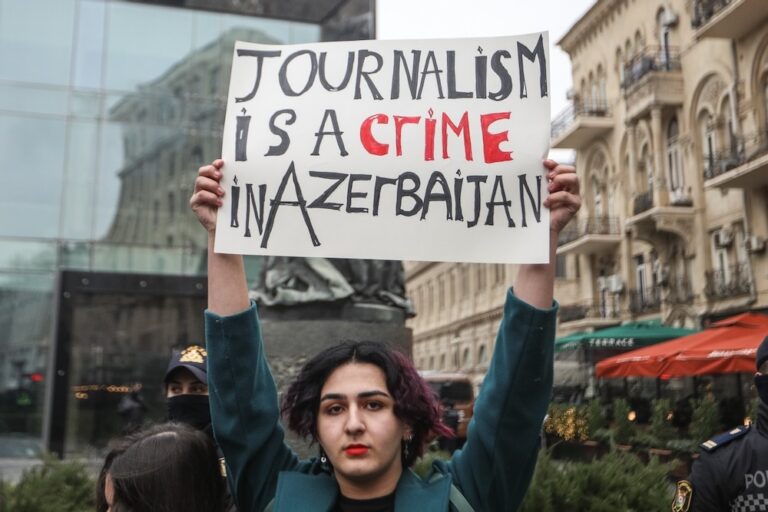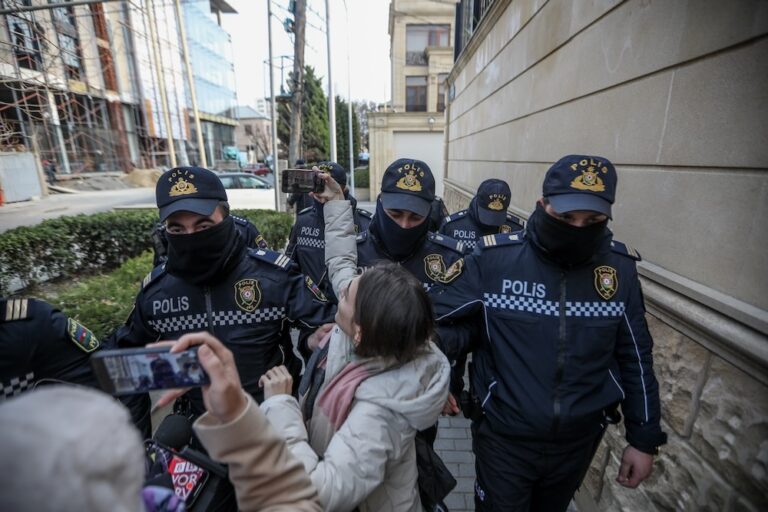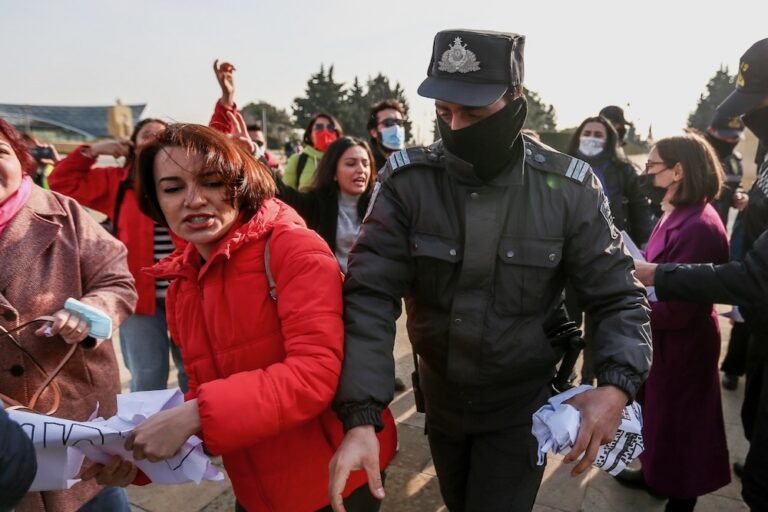A draft bill proposed to the Parliament of Azerbaijan would provide for harsher criminal defamation penalties. If passed, the bill would punish ‘libel’ and ‘insult’ online with 480 hours of unpaid work.
The Institute for Reporters’ Freedom and Safety (IRFS) calls on the Azerbaijani authorities to honor their promises to decriminalize defamation laws amid suggestions that the plans could be scrapped. IRFS believes this to be another attempt of legal pressure on the critical voice. The draft bill, proposed to the Parliament of Azerbaijan on 30 April 2013 by prosecutor general Zakir Garalov, would provide for harsher criminal defamation penalties and criminalize ‘libel’ and ‘insult’ online.
IRFS has continually expressed concerns for the use of outdated legal provisions such as libel to silence journalists and urges the government of Azerbaijan to follow the example of other countries in the region to decriminalize libel and use civil procedures on defamation cases.
If passed, the bill would punish ‘libel’ and ‘insult’ online with 480 hours of unpaid work, through amendments to article 147 (libel) and article 148 (insult) of the Azerbaijani Penal Code.
IRFS believes that the bill aims to have a chilling effect on critical bloggers and activists, thus making citizens less active during the election year.
IRFS once again calls on the authorities to urgently amend the country’s law on defamation to make it conform to international norms on freedom of expression.
These standards hold that defamation should be considered a civil matter, not a crime punishable with imprisonment. They also recognize that public figures, while entitled to protection of their reputation, should tolerate a greater degree of criticism than private citizens.
IRFS recalls that the government has committed to (through, inter alia, the ‘National Action Program for increasing the efficiency of human rights and freedoms in the Republic of Azerbaijan’) to an end to criminal defamation laws which encourage self-censorship, thereby restricting freedom of expression.
The UN Human Rights Committee, the independent body of experts that provides the definitive interpretation of the International Covenant on Civil and Political Rights (ICCPR), has said that “defamation laws must be crafted with care to ensure that they… do not serve, in practice, to stifle freedom of expression.… States parties should consider the decriminalization of defamation and, in any case, the application of the criminal law should only be countenanced in the most serious of cases and imprisonment is never an appropriate penalty.”
Azerbaijan is a state party to the ICCPR and is bound by its provisions.
IRFS urges the Azerbaijani president to ensure the proper implementation of National Action Program for increasing the efficiency of human rights and freedoms.
IRFS further calls on the Parliament to refrain from adopting the proposed bill and decriminalize defamation.
IRFS also calls on the international community, in particular the Council of Europe and the OSCE, to take a stronger stance and exert greater pressure on the Azerbaijani authorities to fulfill their international obligations regarding freedom of expression.


